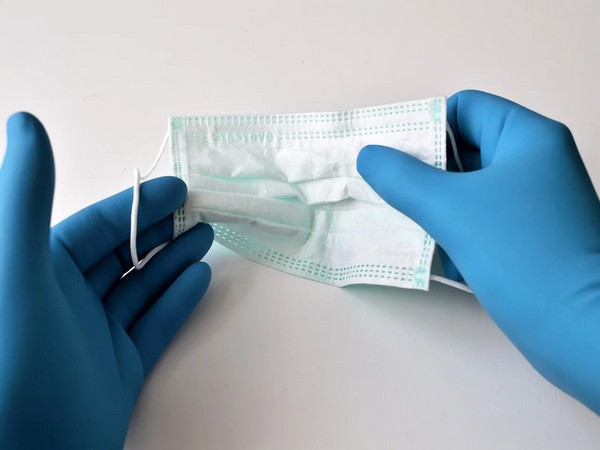Health News Roundup: Ukraine faces new jump in COVID-19 infections; France to stop mandatory COVID-19 mask wearing in some primary schools and more

Following is a summary of current health news briefs.
Ukraine faces new jump in COVID-19 infections
The number of daily new coronavirus infections in Ukraine rose to almost 12,000 over the past 24 hours for the first time since April, health ministry data showed on Thursday.
Ukraine also reported 194 coronavirus-related deaths.
France to stop mandatory COVID-19 mask wearing in some primary schools
Pupils will from Oct. 4 no longer have to wear protective face masks in French primary schools in areas with a low COVID-19 infection rate, according to a government decree released on Thursday. Paris and nearby suburbs are not among the 47 metropolitan departments, or administrative districts, where mandatory wearing of masks will be ended, health ministry data showed.
Russia may allow access to unregistered COVID-19 vaccines, report says
Russians may soon be able to receive COVID-19 vaccines not registered in the country from clinics set up in a special economic zone, under a healthcare ministry proposal, Russian Kommersant daily reported on Thursday. Many Western nations have not registered Russian vaccines such as Sputnik V and require visitors to have other shots that are not available to Russians, a situation that has prompted vaccine tourism.
Merck to buy Acceleron for about $11.5 billion in rare disease drugs push
Merck & Co will buy drugmaker Acceleron Pharma Inc for about $11.5 billion, the companies said on Thursday, as the U.S. pharmaceutical giant looks to beef up its portfolio with drugs for rare diseases. Merck will pay $180 per Acceleron share in cash, representing a premium of about 2.6% to the stock's closing price on Wednesday, according to Refinitiv data.
U.S. CDC calls for more COVID-19 vaccinations among pregnant women
The U.S. Centers for Disease Control and Prevention on Wednesday issued a health advisory to increase COVID-19 vaccinations among women who are pregnant, recently pregnant or trying to become pregnant, to prevent serious illness and death.
The CDC said its data showed only 31% of pregnant people have been vaccinated against COVID-19. Although more pregnant women are now vaccinated, the CDC said uptake of vaccines for pregnant women has been lower compared to the general population.
Mirum's oral drug becomes first U.S. approved Alagille syndrome therapy
Mirum Pharmaceuticals Inc said on Wednesday its drug became the first U.S. approved therapy for treating itching in patients with a rare liver disorder called Alagille syndrome (ALGS). "(Itching) is really devastating for children and families dealing with this disease...and ultimately that itching is a driving factor for liver transplant decisions," Chief Executive Officer Chris Peetz told Reuters.
Malaysia makes COVID-19 vaccinations compulsory for government employees
Malaysia said on Thursday it would now be mandatory for all federal government employees to be vaccinated against COVID-19, with exceptions only to be allowed on health grounds.
The announcement comes as the country looks to boost vaccination rates with the aim of inoculating 80% of the population by the end of the year.
Vietnam's biggest city to start lifting COVID-19 curbs to spur business
Vietnam's commercial hub Ho Chi Minh City will start relaxing its coronavirus curbs from later on Thursday, officials said, allowing more business and social activities after four months of measures aimed at arresting a spiralling death rate. Policies will seek to spur the economy and restore some normalcy while coexisting with the virus, which hit the country hard in recent months, with overall deaths jumping from 36 in mid May to more than 19,098 as of Wednesday.
Texas abortion clinics struggle to survive under restrictive law
Since Texas enacted the strictest anti-abortion law in the country a month ago, the four Whole Woman's Health abortion clinics across the state have seen patient visits plummet, some staff quit and recruitment efforts falter. The new law, which bans abortions after about six weeks and empowers private citizens to enforce it, has the clinics "teeter-tottering between financial risk, legal risk and staffing risk," said Marva Sadler, the facilities' director of clinical services.
(This story has not been edited by Devdiscourse staff and is auto-generated from a syndicated feed.)
ALSO READ
U.S. Supplies Anti-Personnel Land Mines to Ukraine Amid Russian Threats
Race for U.S. Treasury Secretary Heats Up: Trump Interviews New Contenders
Silent Hotline: Rising Tensions and the Russia-U.S. Nuclear Standoff
Potential Air Attack Threat Closes U.S. Embassy in Kyiv
The Global Impact of the U.S.'s Controversial Gag Rule on Reproductive Health










